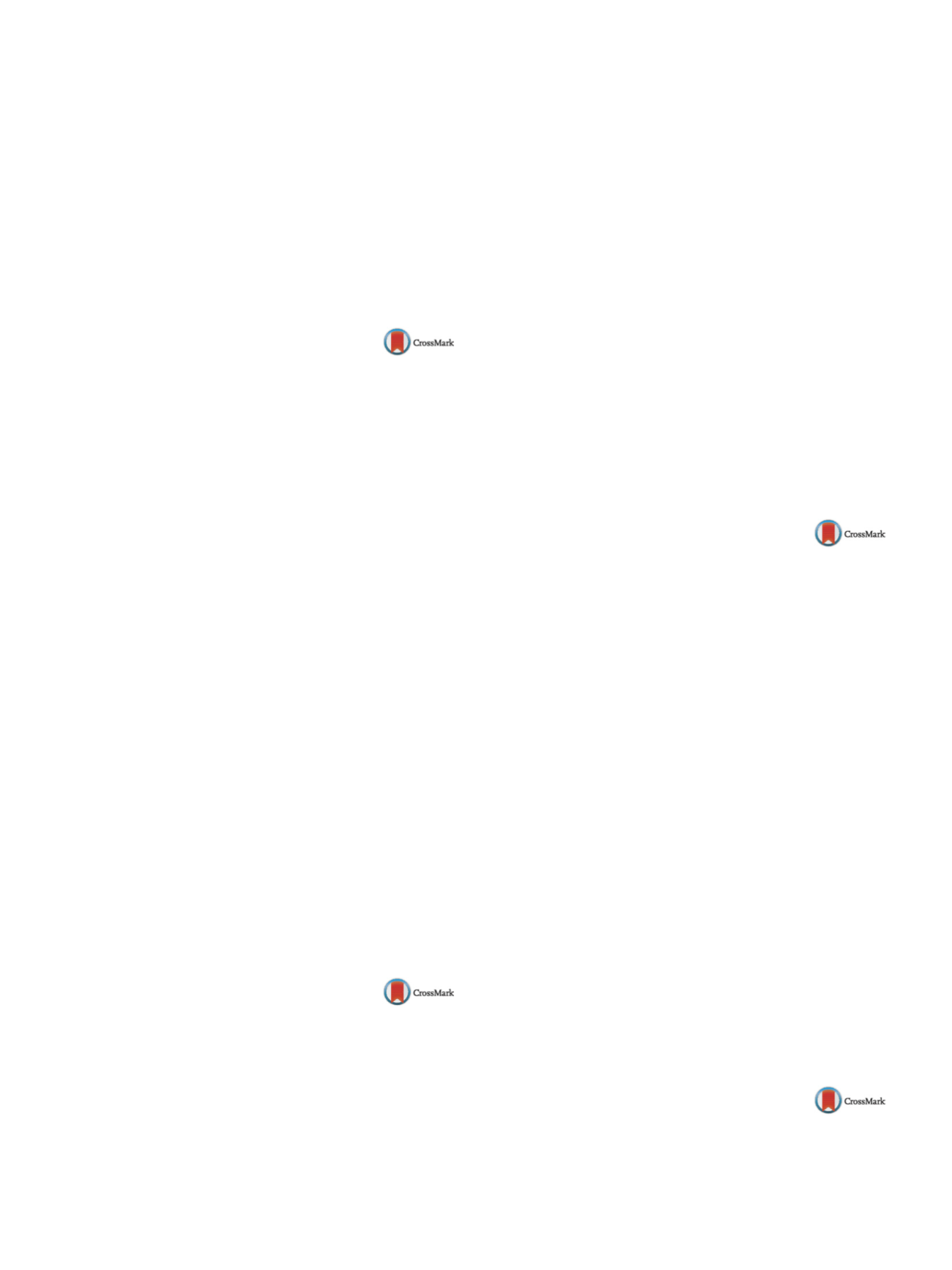

S698
25th European Congress of Psychiatry / European Psychiatry 41S (2017) S645–S709
non-nucleoside reverse transcriptase inhibitors are one of the two
classes of antiviral drugs most frequently associated with neu-
ropsychiatric complications.
Conclusions
The occurrence of new-onset conditions related to
ART makes it difficult to determine the association between psy-
chiatric disorders and ART adverse effects, and given the fact that
patients commit to lifelong therapy, as well as, they can dimin-
ish quality of life; it makes these assessment important in treating
these conditions.
Disclosure of interest
The authors have not supplied their decla-
ration of competing interest.
http://dx.doi.org/10.1016/j.eurpsy.2017.01.1230EV0901
Sex differences in psychiatric
inpatients: Demographics, psychiatric
diagnoses and medical co-morbidities
P. Oliveira
∗
, M. Coroa , N. Madeira , V. Santos
Psychiatry Department, Coimbra Hospital Universitary Centre,
Coimbra, Portugal
∗
Corresponding author.
Objectives
There are few published studies on the relationship
between gender and psychiatric disorders. We assessed sex dif-
ferences in a sample of first-admission psychiatric inpatients to
identify possible risk factors and targets for sex-tailored treatment
interventions.
Methods
A retrospective study of admissions to the psychia-
try department, Coimbra hospital Universitary Centre, Portugal,
in 2015 was accomplished (
n
= 924). The two groups were com-
pared for demographic features, psychiatric diagnoses and medical
co-morbidities.
Results
Male patients were significantly younger (age aver-
age = 47.7 vs. 53.3). Differences in employment, educational, and
marital statuses were found between male and female psychiatric
patients. Having a degreewas a protective factor formales, whereas
it was a risk factor for females. Being divorced and single were
both risk factors for medical co-morbidity in females. A higher
proportion of men among patients hospitalized for schizophre-
nia (14.9 vs. 5.5%) or substance use disorder (10.3 vs. 2.1%) and
a higher proportion of women among those admitted for affec-
tive disorders (43.3 vs. 25.9%), including bipolar disorder (13.4 vs.
9.0%), were found. No significant differences in duration of hospi-
talization between the two groups (22.8 in male vs. 22.2 days in
female)
Conclusions
The differences between the two groups of inpa-
tients were very pronounced. A better understanding of these
differences may help to establish more effective treatment strate-
gies.
Disclosure of interest
The authors have not supplied their decla-
ration of competing interest.
http://dx.doi.org/10.1016/j.eurpsy.2017.01.1231EV0902
Who are the Europeans admitted to
psychiatric hospital in Tunisia?
U. Ouali
∗
, K. Ben Neticha , R. Jomli , A. Ouertani , F. Nacef
Razi Hospital, Psychiatry A, La Manouba, Tunisia
∗
Corresponding author.
Introduction
A large number of foreign travellers and expatriates
visits or lives in Tunisia.
Objectives
To explore socio-demographic, clinical and therapeu-
tic characteristics of European patients admitted to psychiatric care
in Tunisia.
Methods
This is a retrospective, descriptive study on all European
patients admitted to Razi psychiatric university hospital, which is
situated at the outskirts of the capital Tunis, between 2000 and
2015.
Results
A total of 44 Europeans was admitted. Most frequent
nationalities were: French and Germans (19 and 16 patients). The
stay in Tunisiawasmainly due to pathologic travel (17 subjects) and
tourism (13 subjects). In total, 25 patients travelled without being
accompanied. Average agewas 51.3 years with extremes from16 to
78 years. A history of psychiatric disorder was found in 15 patients,
of whomalmost all had stopped treatment. Amajority (19 patients)
was diagnosed with bipolar I disorder, and 8 patients suffered from
schizophrenia. Average duration of hospitalization was 19 days. A
total of, 22 patients were repatriated for medical reasons. Major
difficulties during hospitalization were the language barrier, diffi-
culties to contact family members or former treating psychiatrists
for further information on the patient and his medical history, and
the lack of insurance covering repatriation for medical reasons.
Conclusion
Psycho-education and early action on the precipitat-
ing factors could help to prevent psychiatric illness or relapse in
these patients. Furthermore, attention of public authorities should
be drawn to incomplete insurance coverage in many psychiatric
patients.
Disclosure of interest
The authors have not supplied their decla-
ration of competing interest.
http://dx.doi.org/10.1016/j.eurpsy.2017.01.1232EV0903
New psychiatric service – fresh nurses
experiences
A. Pardal
∗
, N. Correia , C. Santos , A. Matos Pires
ULSBA, Psiquiatria, Beja, Portugal
∗
Corresponding author.
The year 2015 started a new assistance in the cycle of mental health
care ending the gap that existed in the district of Beja in the last
twenty years, in this area. The aim of this presentation is to give the
data of nursing activity in the first six months inpatient psychiatric
service. The population studded was 98 inpatients, 53%male and
47% females aged between 16 and 87-years-old, diagnosed with
depression, schizophrenia, personality disorders, bipolar disorders,
dementias and others. Descriptive statistic of collected data. We
rated the gender, marital status, aged and main disorders as well as
the nursing therapeutic activities preformed with the patients. Six
different kinds of activities were done. The total of interventions
were 148: relaxation, ludic activities, physical activity, art ther-
apy, health education and music therapy. Nursing intervention in
the treatment of people with mental disorders improves the com-
pliance to the treatment (adherence, self-care, useful occupation,
stress career and insight of the illness) during the hospitalization
time, aiming to avoid the worsening situation and the social iso-
lation of the patient, and promote the recovery and quality of life.
These objectives begin on hospital stay during the acute crisis. We
are aware of the fact that this is just the beginning of this approach
and formore and better results we have to have a bigger sample and
a longer time of intervention as well as bettermethodology, namely
the use of scales tomeasure some parameters that canprovidemore
consistent and objective findings.
Disclosure of interest
The authors have not supplied their decla-
ration of competing interest.
http://dx.doi.org/10.1016/j.eurpsy.2017.01.1233EV0904
Psychosis and/or Lyme disease:
There is more than meets the eye
M.J. Peixoto
1 ,∗
, S. Timóteo
1, I. Moreira
2, C. Cochat
3, A. Silva
4,
A. Bastos-Leite
5, C. Silveira
61
Department of Psychiatry and Mental Health, Coimbra, Portugal


















